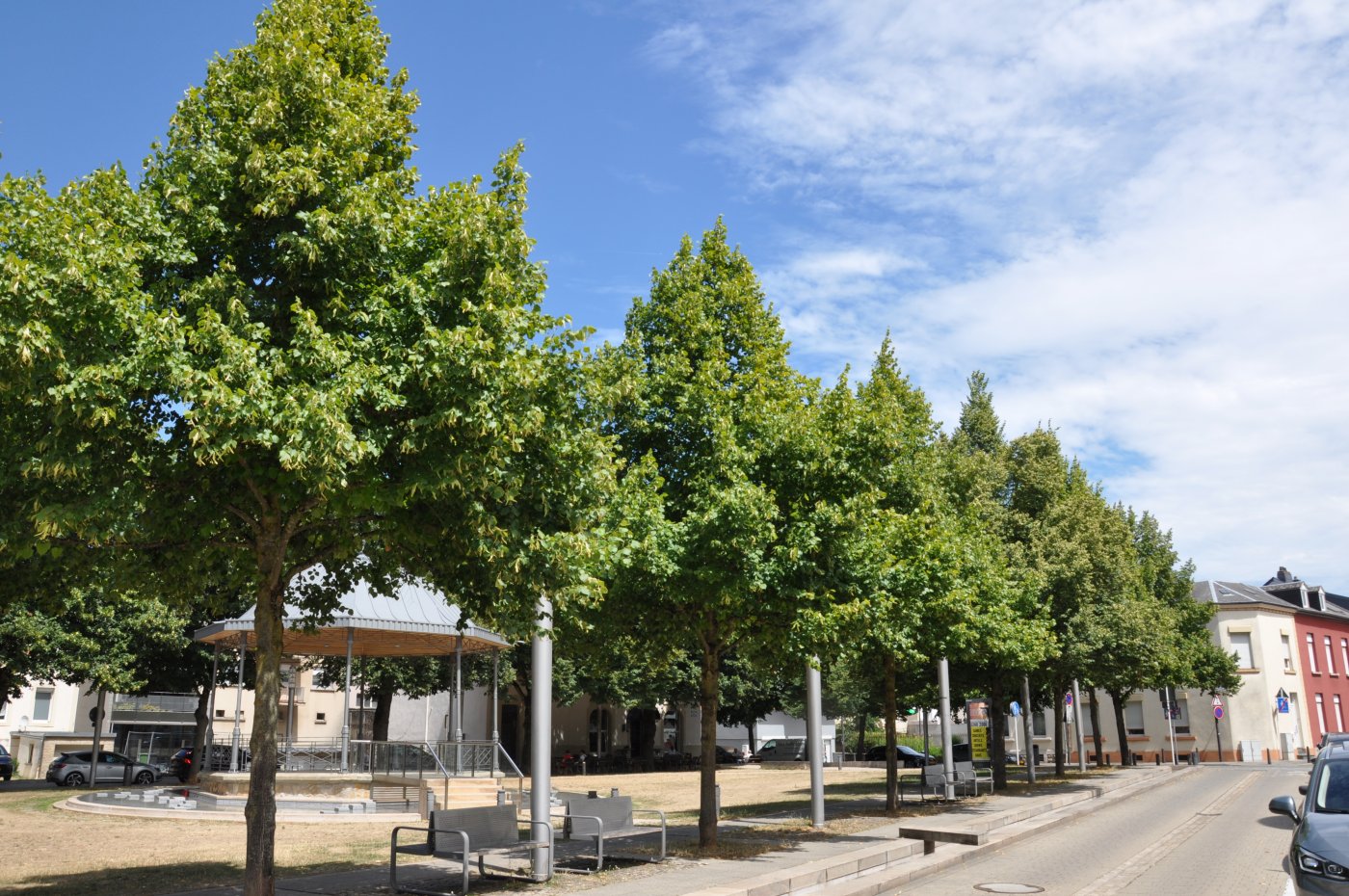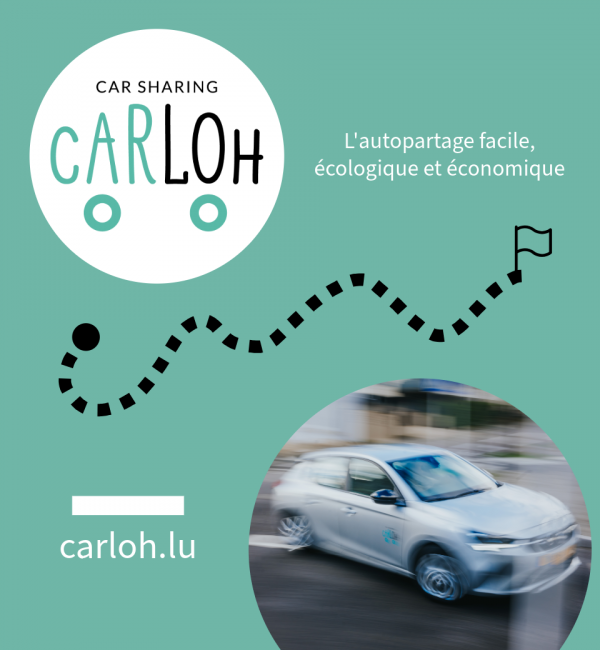Priorities and upcoming projects
In July 2024, the City of Luxembourg presented its priorities and upcoming projects in the area of environmental protection. These are geared towards enhancing the resilience of Luxembourg City's forest heritage and ecosystems, further to the findings reported by the Nature and Forest Agency (Administration de la nature et des forêts) that the health of trees has been deteriorating for several decades.
1) Combatting the impact of climate change
The extreme weather conditions that we have been witnessing in recent years (droughts, heatwaves, flooding and violent storms) have had severe adverse impacts on our forests and cliffs. Securing dangerous trees and protecting our cliffs is one of the top priorities for the City's Service Forêts (Forestry Department).
Project I: All practical information on the protection of Luxembourg City's forests can now be found at Secuforet.vdl.lu. The website provides information on ongoing works and detours, forest rescue points, and real-time weather warnings, as well as advice on what to do in case of wildfires. A sign with a QR code link to Secuforet.vdl.lu is to be installed at the entrance to all municipal-forest car parks.
2) Promoting sustainable management
Luxembourg City's forests have been managed in compliance with FSC standards (Forest Stewardship Council) since 2007, using the approach known as "close-to-nature forestry". The next few years will see renewed efforts in this direction, with initiatives that include the restoration of ponds, the development of forests' "sponge" effect, a significant increase in the use of draft horses to carry out forestry work, etc.
3) Planting trees
In addition to their known benefits for human mental and physical health, trees and forests have a number of positive impacts on the climate, which needs to be preserved. These benefits include CO₂ fixation and storage, which help to reduce the greenhouse effect; enriching the air with oxygen; reducing the impact of extreme temperatures in urban environments by providing shade; humidifying and refreshing the air; developing biodiversity-rich ecosystems; and much more.
- Project II: Building a forest nursery in Eecherfeld, in the district of Muhlenbach, where young trees will be cultivated using seeds from selected trees in Luxembourg City's forests that are suited to the soil conditions in our local forests. The young plants will then be replanted in the municipality's forests. The nursery will also host educational activities for children in the City's elementary schools, and help to sensitise schoolchildren to ecological issues from a very young age.
- Project III: Opening up of ecological corridors and enhancing the ecological status of the City's agricultural lands. Several pilot projects have already been planned, including the planting of a new 2,500-tree forest, an agroforestry project in Eecherfeld in Muhlenbach, and the planting of hedges and rows of trees, and the seeding of wildflower meadows, in Hamm. An ecological management concept for open landscapes is currently being developed.
- Project IV: A feasibility study on the creation of a 200-hectare nature reserve in Bambësch, in Reckendallerkop, where 50 ha of forest will be left untouched, with no forest-management activities. An educational trail could be set up as part of this project.
- Project V: The planting of a new forest, covering an area of around 1 ha, near Huerbaach in the municipal forest in Hamm, with a view to assessing the resistance and adaptation of new species of trees to local weather phenomena caused by climate change. Since many indigenous trees (e.g. beech, spruce, etc.) are being exposed to considerable stresses as a result of successive periods of drought, it is important to determine which species will be the most resistant to the hotter, drier climates that we are likely to experience in the future. This project will be carried out in close collaboration with the Nature and Forest Agency.
- Project VI: Participation in the Forlux research project, investigating the health, adaptation and sustainability of Luxembourg City's forests, in partnership with the Luxembourg Institute of Science and Technology and the Nature and Forest Agency. The project will investigate how our municipal forests respond to the new weather conditions, and how forestry practices could be adapted accordingly. To that end, several sites will be equipped de sensors and weather stations to collect data on trees' state of health, air quality, infiltrated water, and the amount of carbon stored in the trees and in the soil. With the implementation of this highly innovative research project, the City's municipal forests will be among the most studied forest environments in all of Europe. An important part of the project entails making the scientific data understandable to the public, and disseminating it to the City's residents.
4) Optimising local use of timber resources
At present, around 60% of the timber harvested from municipal forests is used by the City of Luxembourg for street furniture, forest furniture, and to generate energy. An analysis is currently being undertaken to determine how local and sustainable use of timber resources can be further optimised to increase the proportion that is used to satisfy the City's own needs.
5) Promoting an attractive urban forest
The Service Forêts manages over 100 km of forest paths and trails, builds and restores forest furniture and infrastructure and, in collaboration with nature officers and the Centre d'animation pédagogique et de loisirs (Creative Learning Centre – CAPEL), runs numerous activities and educational visits (e.g. Mat Freed an de Bësch). Further to the results of the "Urban Forestry – Mäi Stater Bësch" online survey, conducted between June and October 2022, the City has committed to implementing new measures, within the next three years, to cater for what citizens have said they want:
- Project VII: Adaptation of existing paths and trails for new uses (e.g. trails, themed routes, etc.), improvement of signage, repair of forest paths and car parks, and modernisation of outdoor sporting infrastructure (fitness trails).
- Project VIII: Modernisation of the Devashaff site, with the building of a visitor centre where young and old can find information about the municipal forests, biodiversity, the protection of nature, and the effects of climate change on the ecosystems.













